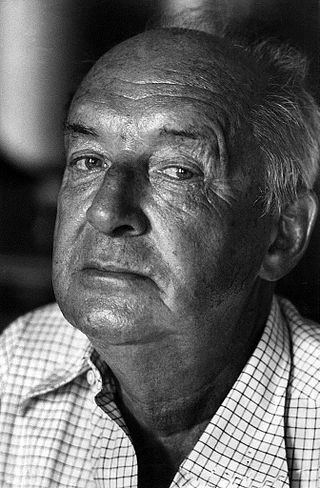
Vladimir Vladimirovich Nabokov, also known by the pen name Vladimir Sirin, was a Russian-American novelist, poet, translator, and entomologist. Born in Imperial Russia in 1899, Nabokov wrote his first nine novels in Russian (1926–1938) while living in Berlin, where he met his wife. He achieved international acclaim and prominence after moving to the United States, where he began writing in English. Nabokov became an American citizen in 1945 and lived mostly on the East Coast before returning to Europe in 1961, where he settled in Montreux, Switzerland.
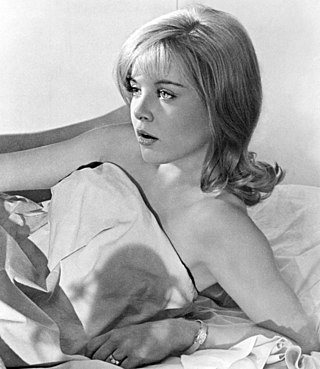
Suellyn Lyon was an American actress. She joined the entertainment industry as a model at the age of 13, and later rose to prominence and won a Golden Globe for playing the title role in the film Lolita (1962). Her other film appearances included The Night of the Iguana (1964), 7 Women (1966), Tony Rome (1967), and Evel Knievel (1971).
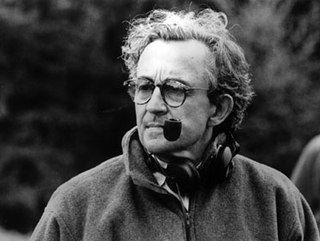
Louis Marie Malle was a French film director, screenwriter, and producer who worked in both French cinema and Hollywood. Described as "eclectic" and "a filmmaker difficult to pin down", Malle made documentaries, romances, period dramas, and thrillers. He often depicted provocative or controversial subject matter.
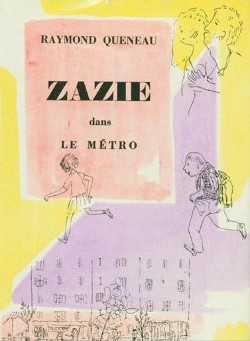
Zazie dans le Métro is a French novel written in 1959 by Raymond Queneau, and his first major success.
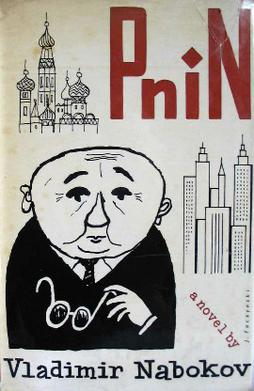
Pnin is Vladimir Nabokov's 13th novel and his fourth written in English; it was published in 1957. The success of Pnin in the United States launched Nabokov's career into literary prominence. Its eponymous protagonist, Timofey Pavlovich Pnin, is a Russian-born assistant professor in his 50s living in the United States, whose character is believed to be based partially on the life of both Nabokov's colleague Marc Szeftel as well as on Nabokov himself. Exiled by the Russian Revolution and what he calls the "Hitler war", Pnin teaches Russian at the fictional Waindell College, loosely inspired by Cornell University and Wellesley College—places where Nabokov himself taught.
Lolita is a 1955 novel by Vladimir Nabokov.

Lolita is a 1962 psychological comedy-drama film directed by Stanley Kubrick and based on the 1955 novel of the same title by Vladimir Nabokov, who is also credited with writing the screenplay. The film follows Humbert Humbert, a middle-aged literature lecturer who becomes sexually infatuated with Dolores Haze, a young adolescent girl. It stars James Mason, Shelley Winters, Peter Sellers and, as the titular character, Sue Lyon.

Lolita is a 1997 drama film directed by Adrian Lyne and written by Stephen Schiff. It is the second screen adaptation of Vladimir Nabokov's 1955 novel of the same name and stars Jeremy Irons as Humbert Humbert and Dominique Swain as Dolores "Lolita" Haze, with supporting roles by Melanie Griffith as Charlotte Haze, and Frank Langella as Clare Quilty. The film is about a middle-aged male professor named Humbert who rents a room in the house of the widow Charlotte Haze and becomes sexually attracted to her adolescent daughter Dolores, also called "Lo" or "Lolita".

Despair is the seventh novel by Vladimir Nabokov, originally published in Russian, serially in the politicized literary journal Sovremennye zapiski during 1934. It was then published as a book in 1936, and translated to English by the author in 1937. Most copies of the 1937 English edition were destroyed by German bombs during World War II; only a few copies remain. Nabokov published a second English translation in 1965; this is now the only English translation in print.
Dmitri Vladimirovich Nabokov was an American opera singer and translator. Born in Berlin, he was the only child of Russian parents: author Vladimir Nabokov and his wife Vera; they emigrated to the United States from France in 1940. He later was naturalized. In his later years, Nabokov translated many of his father's works into other languages, and served as the executor of his father's literary estate.
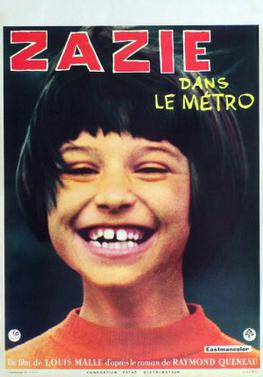
Zazie dans le Métro is a 1960 French film directed by Louis Malle, based on the 1959 novel Zazie dans le Métro by Raymond Queneau. Frequently surreal, and full of visual and verbal jokes, the intricate plot follows a group of protean characters around a crowded Paris during a Métro strike.
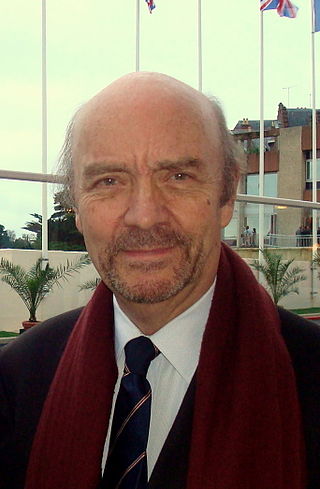
Jean-Paul Rappeneau is a French film director and screenwriter.

"Lolita " is the third single from Celine Dion's album Incognito, released on 21 September 1987 in Quebec, Canada. The song was composed and produced by Jean Roussel and the lyrics were written by Luc Plamondon.
"Lolita" is an English-language term defining a young girl as "precociously seductive." It originates from Vladimir Nabokov's 1955 novel Lolita, which portrays the narrator Humbert's sexual obsession with and victimization of a 12-year-old girl whom he privately calls "Lolita", the Spanish nickname for Dolores. Unlike Nabokov, however, contemporary writers typically use the term "Lolita" to portray a young girl who attracts adult desire as complicit rather than victimized.
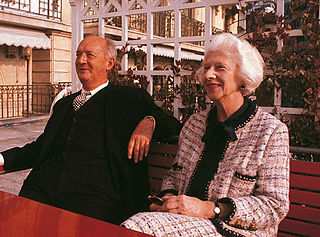
Véra Yevseyevna Nabokova was the wife, editor, and translator of Russian writer Vladimir Nabokov, and a source of inspiration for many of his works.
Lolita is a female given name of Spanish origin. It is the diminutive form of Lola, a hypocorism of Dolores, which means "sorrows" or "pains" in Spanish.

The Enchanter is a novella written by Vladimir Nabokov in Paris in 1939. As Волшебник (Volshebnik) it was his last work of fiction written in Russian. Nabokov never published it during his lifetime. After his death, his son Dmitri translated the novella into English in 1986 and it was published the following year. Its original Russian version became available in 1991. The story deals with the hebephilia of the protagonist and thus is linked to and presages the Lolita theme.
This is a list of works by writer Vladimir Nabokov.

Lolita is a 1955 novel written by Russian-American novelist Vladimir Nabokov. The novel is notable for its controversial subject: the protagonist and unreliable narrator, a middle-aged literature professor under the pseudonym Humbert Humbert, is obsessed with a 12-year-old girl, Dolores Haze, whom he kidnaps and sexually abuses after becoming her stepfather. "Lolita", the Spanish nickname for Dolores, is what he calls her privately. The novel was originally written in English and first published in Paris in 1955 by Olympia Press.

Michael Maar is a German literary scholar, germanist and author.














